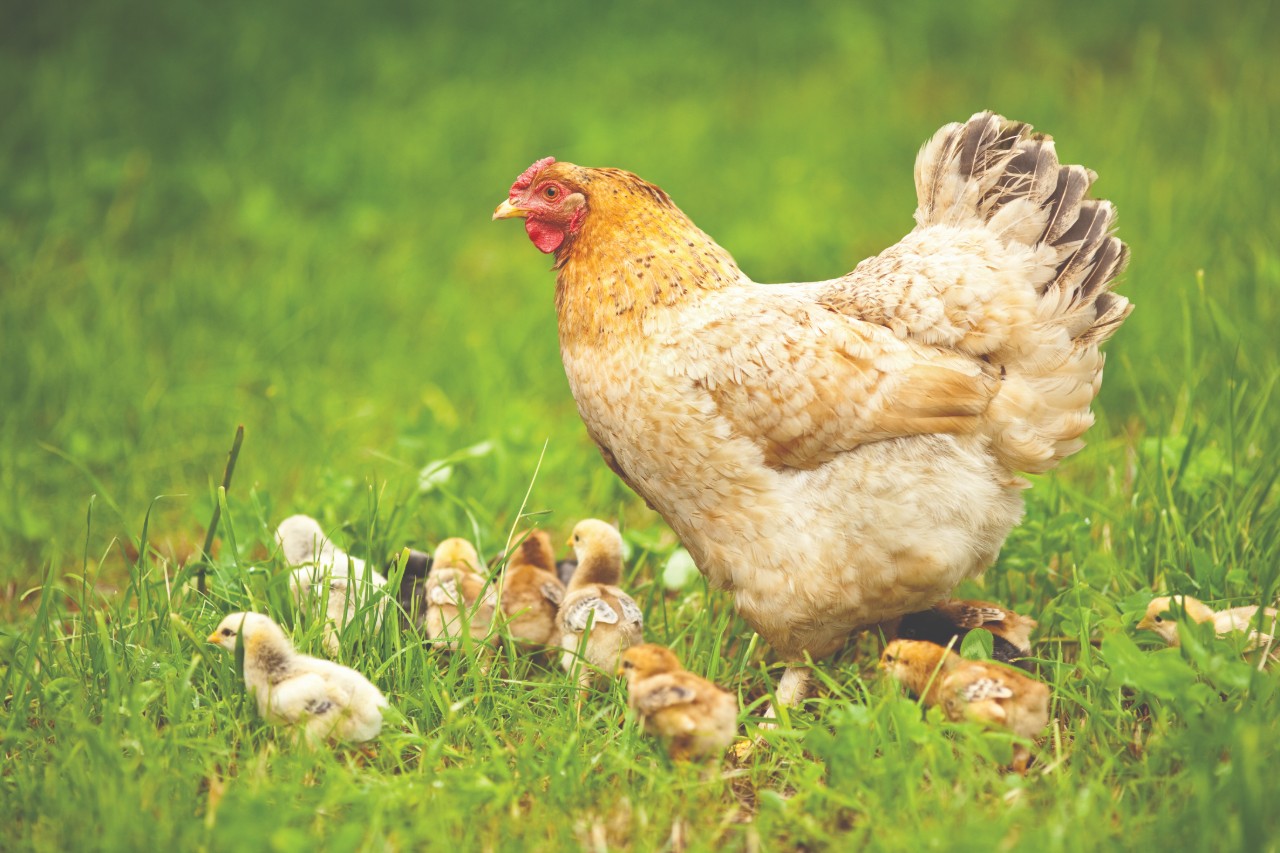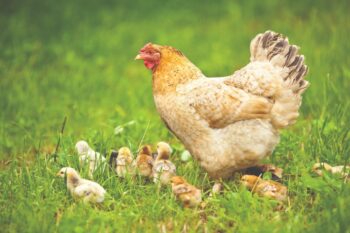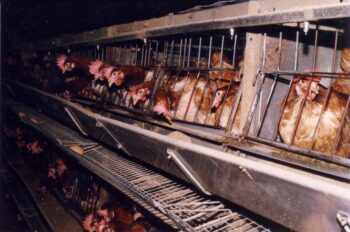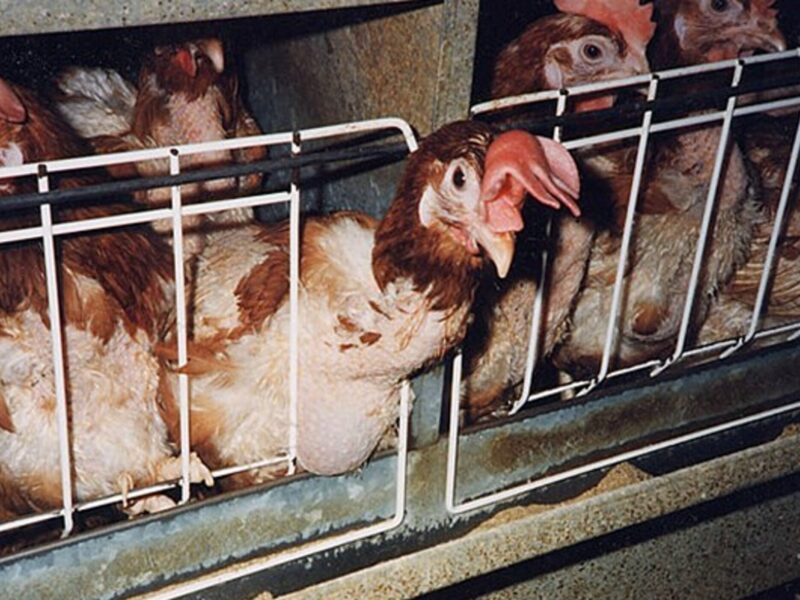
Sense, Science and Sustainability

Mother hen and her chicks | Credit: Compassion in World Farming
On 22nd July, I took part in a live Webinar that asked the question ‘Can genome editing and agroecology co-exist in the sustainable food and farming mix?‘
The Chair was Pat Thomas, Director, Beyond GM/A Bigger Conversation and the Panel comprised of myself, Wendy Harwood, Senior Scientist, Genes in the Environment, John Innes Centre; Guy Watson-Singh, Farmer, Founder Riverford Organics; Lawrence Woodward, Director of Beyond GM and Jack Heinemann, Professor of genetics and molecular biology, University of Canterbury, New Zealand.
I thought it might be helpful to set out my own perspective through a new blog for those of you who might have missed the Webinar.
However, a recording of the Webinar is available to view using this link on the Bigger Conversation YouTube playlist.
Can Genome Editing and Agroecology co-exist in the sustainable food and farming mix?
Industrial agriculture increases the “risk of future pandemics and needs to be tackled” as a global priority: not my words, but those made recently by the ruling Council of the EU.
As countries emerge from Covid-induced lockdown, policymakers are starting to wake up to the multi-pronged threat from industrial agriculture, where thousands of animals are caged, crammed and confined, producing the perfect breeding ground for disease. Highly pathogenic strains of Avian Influenza or Swine Flu are but two examples, the latter causing a pandemic only a decade ago killing some half a million people.
Industrial agriculture is not only the biggest cause of animal cruelty on the planet, it is also a major driver of deforestation, pollution and decline in the world’s wildlife.
The question is, what do we replace it with and does gene-editing have a role to play?

Factory farmed, caged and confined, egg laying hens | Credit: Compassion in World Farming
![]() To answer the first part, in this age of pandemic, climate and biodiversity emergency, factory farming is a major contributor to all of these challenges now facing humanity.
To answer the first part, in this age of pandemic, climate and biodiversity emergency, factory farming is a major contributor to all of these challenges now facing humanity.
There is an urgent need for a wholesale move toward a future-fit food system based on regenerative agriculture. A switch to farming systems that works in harmony with nature: building back soil health, bringing pollinators and other wildlife swarming back, conserving water, being kind to animals and protecting the future for all.
It means ending factory farming, drastically reducing the number of animals farmed and restoring them to mixed, rotational farms.
This major shift is unlikely to happen overnight.
So, to tackle the second part of the question, in this shift to a regenerative future with more planet-friendly diets, could there be a role for GM or gene-editing?
Some already try to present GM crops as feeding the world sustainably when nothing could be further from the truth: the majority of GM crops like cereals and soya are feeding factory farms. Which makes it harder to feed the world. Factory farms squander enough food to feed billions of people.
But what about gene-editing? Could that have a place?
Compassion has a longstanding concern over the use of biotechnology in farm animals, rooted in the reality that most genetic modification and, more recently, gene-editing are carried out for purposes detrimental to animal welfare. We’ve held conferences on the subject, written books, ran campaigns. GM tends to concentrate on inferring resistance to diseases inherent on factory farms or increasing production, exacerbating animal cruelty and ‘locking in’ the industrial model.
Yet, let’s be careful to avoid being absolutist on biotechnology; we should recognize that there could be altruistic developments that could conceivably be beneficial to animal welfare.
To my mind, gene-editing is unacceptable in farm animals except in the most exceptional circumstances:
- Where there is demonstrably no detrimental impact to animal welfare
- Where no less intrusive method is available to achieve the same outcome
- Where it doesn’t ‘lock-in’ the use of industrial livestock production systems.
Now let’s look at what I think is a genuine possibility.

The grinding of unwanted male chicks | Credit: Daily Mail
An intractable problem for commercial egg production, be it organic, free range or battery, is that every year, more than seven billion male chicks are killed soon after hatching. Born of the egg laying strain, they won’t put on enough weight for the meat industry. Born male, they are useless as egg layers. So, they are macerated, suffocated or gassed. A huge waste of life.
What if chickens were successfully gene-edited so that only eggs with female embryos are viable; the male ones simply don’t develop beyond the earliest cellular level?
If successful, this technology could be a revolution, ending at a stroke the killing at birth of seven billion sentient creatures a year.
Of course, ultimately, I’d like to see a regenerative, agroecological farming system where only dual-purpose breeds of chicken are used, thereby usurping the need to grind male chicks to death or suffocate them soon after they’ve struggled from the egg.
However, if a gene-editing solution could work without downside for animal welfare, then I’d take it over the cruelty and waste of life that currently blights egg production, be it industrial, free range or organic.
So, let’s stay focused on the end goal of creating a humane and regenerative food system that can save a future for animals, people and the planet.
And along the way, let’s avoid a pursuit of perfection getting in the way of much needed progress toward a better, safer, cruelty-free agroecological world for everyone.





